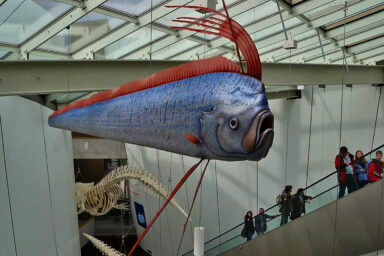Act Now: NY Voter Registration Deadline Is Oct. 9
10 Ways Trump Is Becoming a Dictator; Misinformation Was a Problem During the Civil War, Too ; and More Picks 10/9
10 Ways Trump Is Becoming a Dictator (Dan)
From Foreign Policy: “Trump now has every incentive to do whatever he can to remain in power, if only to keep himself and his family out of jail and to avoid losing the ill-gotten gains of a lifetime of legally questionable business deals, not to mention the millions of dollars’ worth of self-dealing he’s indulged in as president.”
Trump’s Law Enforcement Group Halted Over Secret Meetings (Dana)
From Law360: “The Presidential Commission on Law Enforcement and the Administration of Justice, which has been ‘far from transparent,’ must immediately stop its work and cannot release any report until it meets the requirements of the Federal Advisory Committee Act, U.S. District Judge John D. Bates said in the ruling. ‘Especially in 2020, when racial justice and civil rights issues involving law enforcement have erupted across the nation, one may legitimately question whether it is sound policy to have a group with little diversity of experience examine, behind closed doors, the sensitive issues facing law enforcement and the criminal justice system in America today,’ the judge wrote in his decision granting summary judgment.”
Devin Nunes Lost in Court Against a Magazine. Now He Wants to Change US Libel Law (Russ)
From the Fresno Bee: “President Donald Trump frequently argues that libel laws should be changed so media companies can more easily be sued over stories about public figures like politicians. Rep. Devin Nunes, a close Trump ally, is now making that case in court. In a new legal brief, the California Republican is urging a federal appeals court to reconsider a 1964 Supreme Court case that’s considered the bedrock of U.S. libel law. That case, known as New York Times vs. Sullivan, holds that public officials can successfully sue news organizations only if they can prove that journalists act with ‘actual malice’ in publishing false information.”
The Startling Reach and Disparate Impact of Cleveland Clinic’s Private Police Force (Reader Steve)
The author writes, “Armed private police patrolling Cleveland’s medical zone and the city streets around it disproportionately charge and cite Black people, even though most hospital employees, patients and visitors are white.”
Misinformation Was a Problem During the Civil War, Too (Dana)
The author writes, “While the platforms that help today’s untruths snowball and spread are often decidedly modern, the problem itself is nothing new. During the Civil War, Americans furiously sifted false from true during a time of extreme partisan divisions, even among those who agreed on the need to abolish slavery. They even had their own version of the Internet — the telegraph — which had exposed such stark partisan divisions in the country, its inventor Samuel Morse founded an organization to rebuild national unity. Looking at that time, it’s possible to identify key lessons for navigating this 2020 election season when accusations and false brags about the candidates abound.”
Scientists Find It Is Better to Drink Coffee After Breakfast, Not Before (Peg)
The author writes, “A strong, black coffee to wake you up after a bad night’s sleep could impair control of blood sugar levels, according to a new study. Research from the Centre for Nutrition, Exercise & Metabolism at the University of Bath (UK) looked at the effect of broken sleep and morning coffee across a range of different metabolic markers. Writing in the British Journal of Nutrition the scientists show that whilst one night of poor sleep has limited impact on our metabolism, drinking coffee as a way to perk you up from a slumber can have a negative effect on blood glucose (sugar) control.”



